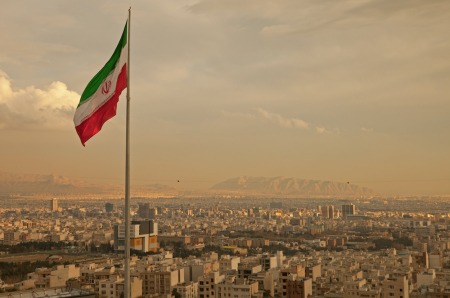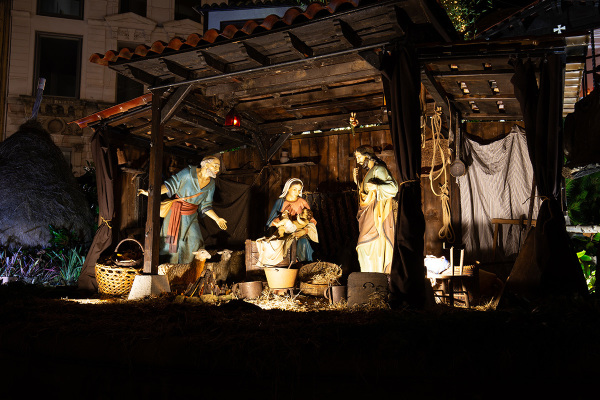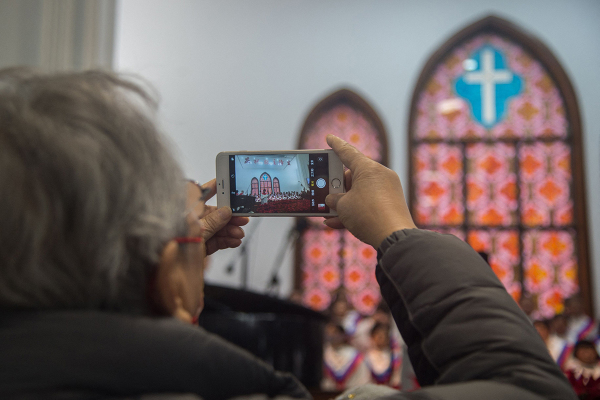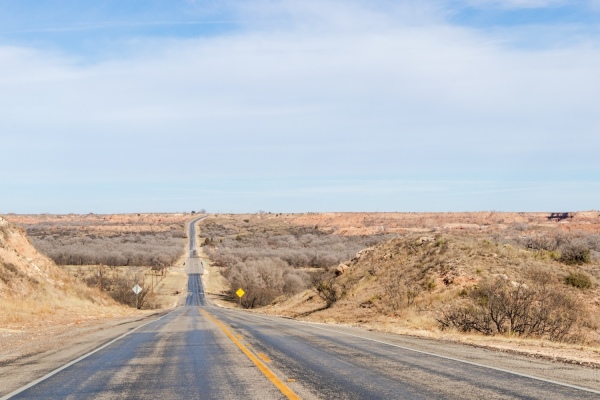2 Christians unexpectedly released from Iran's notorious Evin Prison after fire damages facility

Two Christians imprisoned in Iran for their church leadership roles were released a few days after a fire broke out in Tehran’s Evin Prison on Oct. 15, but rights advocates were mystified about why they were freed.
Pastor Naser Navard Goltapeh, who had spent two months in solitary confinement, was released from Evin Prison on Oct. 17 after receiving a pardon from Supreme Leader Ali Khamanei, rights advocates said. On Oct. 18 Fariba Dalir, who had spent 38 days in solitary confinement after her arrest in July 2021 for starting a house church, was also released from Evin Prison.
She also was pardoned, though by whose authority remained unclear. Both pardons were unexpected and had previously been denied, according to religious freedom advocates.
“We know that various bodies, the U.K. government and the U.N., were advocating for [Pastor Goltapeh’s] release, and we know that Evin Prison is hosting protestors and running out of space, but we don’t know what made Khamanei do this out of the blue,” said an expert on Iran for advocacy group Middle East Concern (MEC).
Pastor Goltapeh had requested early release and leave multiple times and had been denied, said the MEC source, on condition of anonymity. Dalir had made a request for early release in August and was denied. Both Pastor Goltapeh and Dalir had served over one-third of their sentences, and under Iranian law were eligible for early release.
Pastor Goltapeh was arrested with three other Christians at an engagement party in Karaj, near Tehran, in June 2016, according to MEC. He and three men from Azerbaijan were taken to Evin Prison, interrogated repeatedly and held in solitary confinement for two months.
They were charged in October 2016 with “missionary activities” and “actions against national security” and released on bail. A month later, the three Azerbaijani men were allowed to leave Iran, but Pastor Goltapeh, an Iranian convert from Islam, had to stay to face trial.
In May 2017, Pastor Goltapeh was convicted of “acting against national security through forming and establishing illegal house churches” and sentenced to 10 years in prison. His appeal failed, and he reported to Evin Prison in January 2018.
Pastor Goltapeh endured mistreatment by guards and denial of medical treatment for a painful gum infection and COVID-19 after an outbreak of coronavirus at the prison. The COVID-19 infection eventually passed, and the pastor received dental treatment in 2021.
Dalir, a convert from Islam, was sentenced in November 2021 to five years in prison for “acting against national security by establishing and leading an evangelical Christian church.” According to rights group Article 18, Dalir was denied parole for a fifth time in July. She also had been denied retrial several times.
Her sentence was later reduced to two years after the presiding judge realized he had made an administrative mistake in her case.
Members of the Islamic Revolutionary Guard had arrested Dalir with five other Christians in July 2021. The Guard held Dalir in solitary confinement for 38 days and then transferred her to a women’s prison until she was released on bail in November of that year.
Dalir began serving her sentence in April. At the time of her release, she had completed more than one-third of her sentence, making her eligible for parole, but in August her application for conditional release was denied.
Pastor Goltapeh (also spelled Gol-Tapeh) was halfway through a 10-year prison sentence when he was released. With unknown plans for the future, Goltapeh was staying with members of his family at this writing.
Fire and riot
Although officials have made no comment to explain the release of Pastor Goltapeh and Dalir, the releases came in the wake of a riot that broke out Oct. 15 at Evin Prison and a subsequent fire that destroyed much of the complex, including the area where Pastor Goltapeh had been held at one time.
Eight prisoners died and about 60 were injured in the incident. Iranian authorities claimed the fatalities were the result of smoke inhalation, but Amnesty International reported that some of the wounded prisoners had been shot, and that the government likely under-reported total casualties.
No Christian prisoners were harmed in the fire, according to MEC. At least a dozen Christian prisoners of conscience were incarcerated at Evin Prison when the fire broke out, many held in Ward 8, adjacent to Ward 7 where the worst damage reportedly occurred, according to Article 18.
The rioting and fire destroyed enough of the prison that authorities were forced to transfer an unknown but significant number of prisoners to other facilities. The possibility exists that Christian prisoners were transferred, but there were no reports of such transfers at this writing.
Built in 1972, Evin Prison was originally meant to hold political prisoners arrested by SAVAK, the Shah of Iran’s secret police. After the fall of the Shah’s regime in the 1979 Iranian Revolution, Evin Prison became known internationally not just as a place for political prisoners but also where the Shia Islamist regime imprisoned and tortured religious adherents to break their will to follow their beliefs.
Iran ranked ninth on Christian support organization Open Doors USA’s 2022 World Watch List of the countries where it is most difficult to be a Christian.
This article was originally published by Morning Star News.
Morning Star News is the only independent news service focusing exclusively on the persecution of Christians. The nonprofit's mission is to provide complete, reliable, even-handed news in order to empower those in the free world to help persecuted Christians, and to encourage persecuted Christians by informing them that they are not alone in their suffering.





















